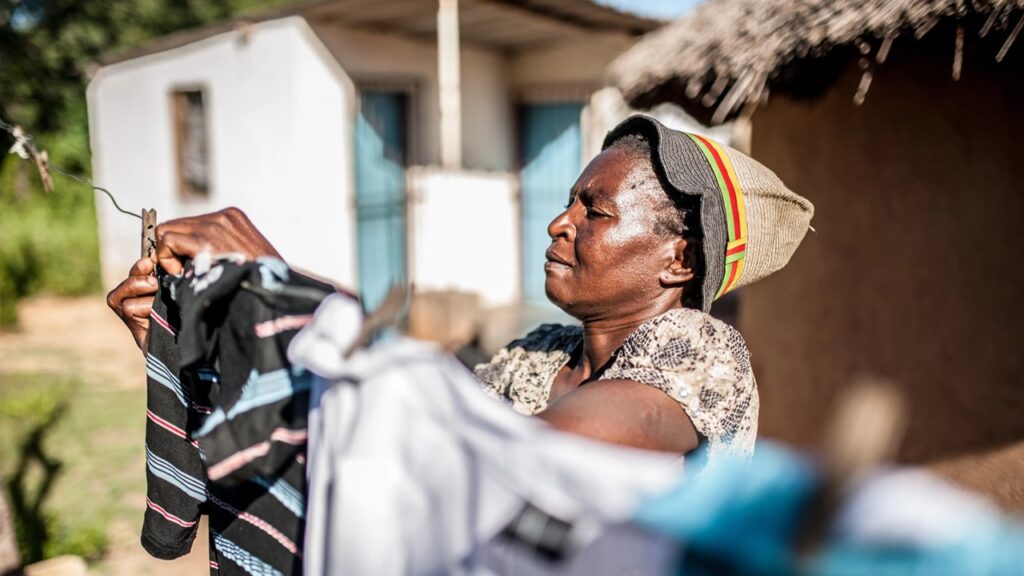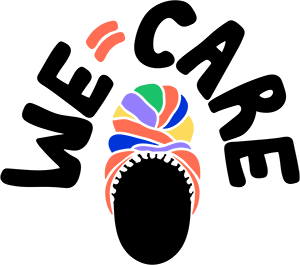Care responsibilities on Africa’s women and girls was always tough, COVID-19 has made it tougher
Before corona, I used to have constant work. I probably only missed a day in the week. Now, families are afraid to let us into their homes. They think that you will bring them corona. Life has become hard. Work is not guaranteed. With children in the house, food does not last. Most times, I am the one who supports the family. My husband is a casual labourer. He works at a construction site, so his income is not steady.
Sophia (*name has been changed.), 40. Domestic worker — Nairobi, Kenya

The COVID-19 pandemic is threatening the global development narrative of ‘leaving no one behind.’ This particularly, for the more than 420 million Africans who live below the global poverty line, many of whom are women and girls.
Invisible carers
This pandemic has laid bare what has for too long been invisible: the heavy weight of unpaid care and domestic work (UCDW) that women and girls provide to keep our households and societies functioning.
Across Africa, the imposed lockdowns have halted the operations of already fragile care services forcing women and girls to embrace additional responsibilities beyond their daily routines to support their families.
Poor government investment in care facilities has made the situation more challenging for African women and girls, especially with poor quality health facilities and costly services, which often discourage patients from seeking professional care. Where a healthcare facility is present, the challenge of limited capacity surfaces, leaving women and girls with increased responsibilities to take care of the sick at home, further exposing themselves to the risk of contracting the virus.
Stalling progress on gender equality
Even before the pandemic, it was already well documented that the unequal sharing of UCDW between women and men in the household, coupled with inadequate government investment in care services and infrastructure, was stalling gender equality across Africa and globally.
Education has been touted as a great equalizer. At the outset of coronavirus, it was estimated that more than 26 million girls in Ethiopia, Kenya, Uganda, and Zimbabwe alone would be affected by country-wide school closures. Many of these school-age girls will assume additional household responsibilities at the expense of time they should be spending on schoolwork.
“When I am not home, it is my 13-year-old daughter who maintains the home. However, I try to make her duties light. She will only wash clothes and cook. I do the rest of the work on Sunday. My husband will not touch any chore. Not before coronavirus, not now. Maybe when I am sick,” Sophia tells me.
In the rural and low-income communities, women spend up to 14 hours a day on unpaid care work, which is five times more than what men do in such communities.
A 2017 Oxfam survey found that more than 1 in every 3 rural women in surveyed districts of Uganda and Zimbabwe reported injury or illness due to unpaid care, and over half of these women said the harm was long-lasting and resulted in lost days of work.
Washing hands with soap and water is essential in mitigating the virus, yet data from 25 countries in sub-Saharan Africa shows that only 55% of households are within 15 minutes of a water source, which means that women and girls have to walk long distances to fetch additional water, to enable frequent handwashing to stop the spread of the virus. Yet another burden, upon the care burden.
A different Mother’s Day
As the world commemorated Mother’s day on the 10th of May, I reflected: Beyond the messages of love, when we look back at 2020, it is paramount we remember that it is women and girls who were on the frontlines of care, cushioning the stress and providing comfort.
Unlike other Mother’s days, this year, Sophia ‘s mother did not receive the usual USD 10 from her daughter. “I did not have any money,” Sophia tells me, “I did not even call her. Sophia confesses that staying home all day because he does not have a place to go to work has made her husband very irritable. She too prefers to be out of the house to maintain peace. “My husband is a casual labourer. He works at a construction site. His income is not steady, so I am the one who mostly supports the family; I would say that I am the bread winner of the family.”
As I listen to Sophia, I realize how lucky I am that in my household, at least on Mother’s Day, the burden of care was shifted. I wish that beyond the day itself, we can build a movement that will dismantle the unjust notion that it is the sole responsibility of women and girls to cook, clean, and care for our children and the sick. When this is our reality, the hope for an equal world will be high.
How do we proceed?
It starts at home by ensuring we each play our part in redistributing care responsibilities among all members of the family, but it must go beyond that.
We must also demand that our leaders’ tax the wealthy and their corporations appropriately to fund quality care services and social protection systems that work for women and girls. Governments and International Financial Institutions should put in place response funds with budget allocations to essential and care services to ensure women will not be expected to fill the gaps when a crisis hits and be placed in an impossible situation of choosing between looking for work to feed their family or caring for their children at home.
Governments, civil society, political and social leaders should capitalize on the urgency of the COVID — 19 pandemic to invest in shifting mindsets and practices towards redistribution of care work within families and communities, by encouraging and engaging men and boys as actors in supporting this life-sustaining care work.
This is the time for civil society groups to position and strengthen their advocacy on UCDW as a women’s rights issue and as key to unfolding a gender-just society. We need to ensure that the important gains to women’s rights and gender equality across Africa in the last decade such as girls’ education are not lost and rolled back. We cannot go back to ‘business as usual.’ We must forge a new future that takes gender equality seriously — one that values, invests in, and more equally shares UCDW.
As we navigate through this crisis, we owe it to every woman and girl, to reflect and address UCDW as a pillar for the sustainable development of the African continent.
Written by Leah Mugehera — Gender Justice & Women’s Rights Lead — Oxfam Pan Africa Programme. This blog was first published on Medium.
Photo credit: From Zimbabwe, Senia Tanyanyiwa* hangs up her family’s laundry outside her home in the Gutu region. Senia does most of the work around the house including cooking, cleaning, laundry, collecting water and farming corn, sweet potatoes, round nuts and ground nuts. ”I don’t have any time to myself at all. I only get to rest when I sleep because of all the work that my attention every day. I feel pain in my heart. I just ask myself for how long things will go on like this. But I can’t stop working because there is no option, so I just keep working.” Photo: Aurelie Marrier d’Unienville / Oxfam *Names have been changed.
